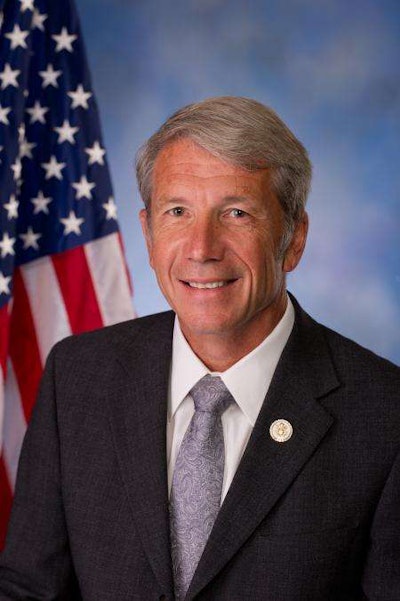 U.S. Rep. Kurt Schrader
U.S. Rep. Kurt SchraderAs Congress was leaving Capitol Hill late last week for a break that lasts beyond Labor Day, U.S. Rep. Kurt Schrader of Oregon and several fellow Democrats introduced a bill that would require new overtime regulations to be phased in over three years.
As it stands now, the Obama administration’s new overtime rule – doubling the salary required for an employee to be exempt from overtime pay – will go into effect on Dec. 1.
The final rule’s salary threshold totals $47,476; in other words, to be exempt from overtime rules, an employee must make at least $47,476 a year. That’s just more than double the current figure of $23,660 – a number even critics of the rule change acknowledge should be much higher.
The government’s long delay in updating the threshold has had a significant impact: In 1975, 62 percent of U.S. workers qualified for overtime pay; today, it’s 7 percent.
In a news release Sunday, Schrader acknowledges that the overtime threshold is “horribly outdated,” but argued that putting the new rule fully into effect on Dec. 1 doesn’t give U.S. businesses sufficient time to plan for and implement the change.
“Implementing this increase overnight” is likely to result in job cuts and demotions at many companies, the congressman said, “and workers will actually end up making less than they made before.”
Reps. Jim Cooper of Tennessee, Henry Cuellar of Texas and Collin Peterson of Minnesota joined Schrader in introducing the legislation, which is titled the “Overtime Reform and Enhancement Act,” or OREA.
Schrader’s bill would phase in the threshold increases to $35,984 on Dec. 1; $39,780 on Dec. 1, 2017; $43,628 on Dec. 1, 2018; and reach the pending rule’s $47,476 on Dec. 1, 2019.
OREA also would eliminate the pending rule’s provision for an automatic update every three years based on inflation. Schrader said each administration should act responsibly to adjust the overtime threshold when needed but that such changes should not be put on “autopilot.”
Republicans also have been working hard to short-circuit the new overtime rule’s implementation.
Among the organizations leading the fight to delay, if not quash, the overtime rule altogether is the Society for Human Resource Management (SHRM).
 Lisa Horn
Lisa HornIn an interview Monday, Lisa Horn, SHRM’s director of congressional affairs, called last week’s introduction of OREA “a positive development,” adding that “it’s a bipartisan approach – very reasonable – giving employers more time to be prepared.”
Horn said SHRM is especially pleased that Schrader’s bill called for the elimination of automatic updates to the overtime threshold.
“We believe updates should go through the usual (regulatory) notice and comment period,” she said, “giving all stakeholders the opportunity to speak, especially in light of today’s economic climate.”
The National Association of Landscape Professionals is among numerous business-related groups lobbying Congress to block implementation of the new rule on Dec. 1. NALP’s vice president of government affairs, Paul Mendelsohn, was in meetings Monday afternoon and not immediately available for comment.









